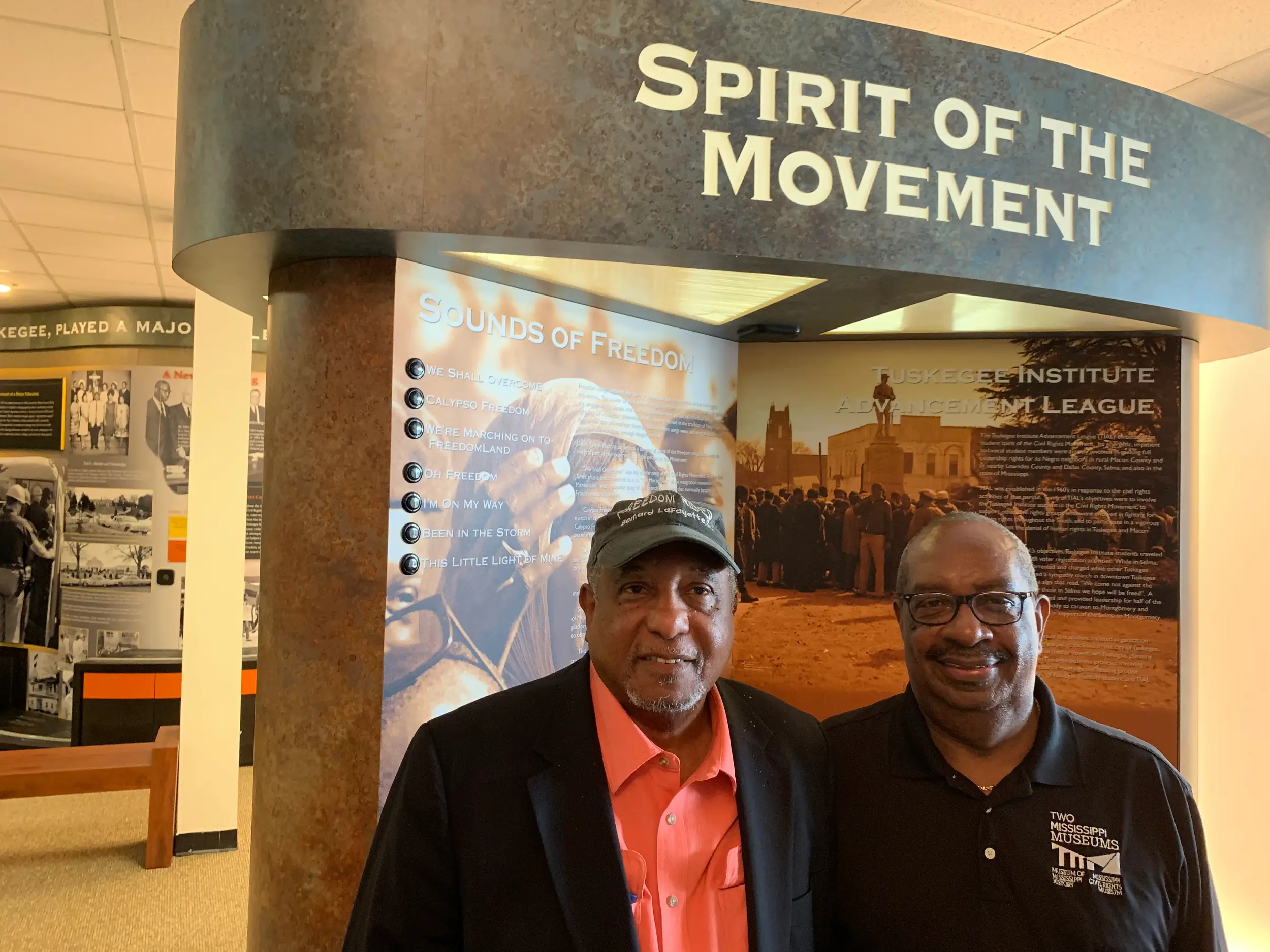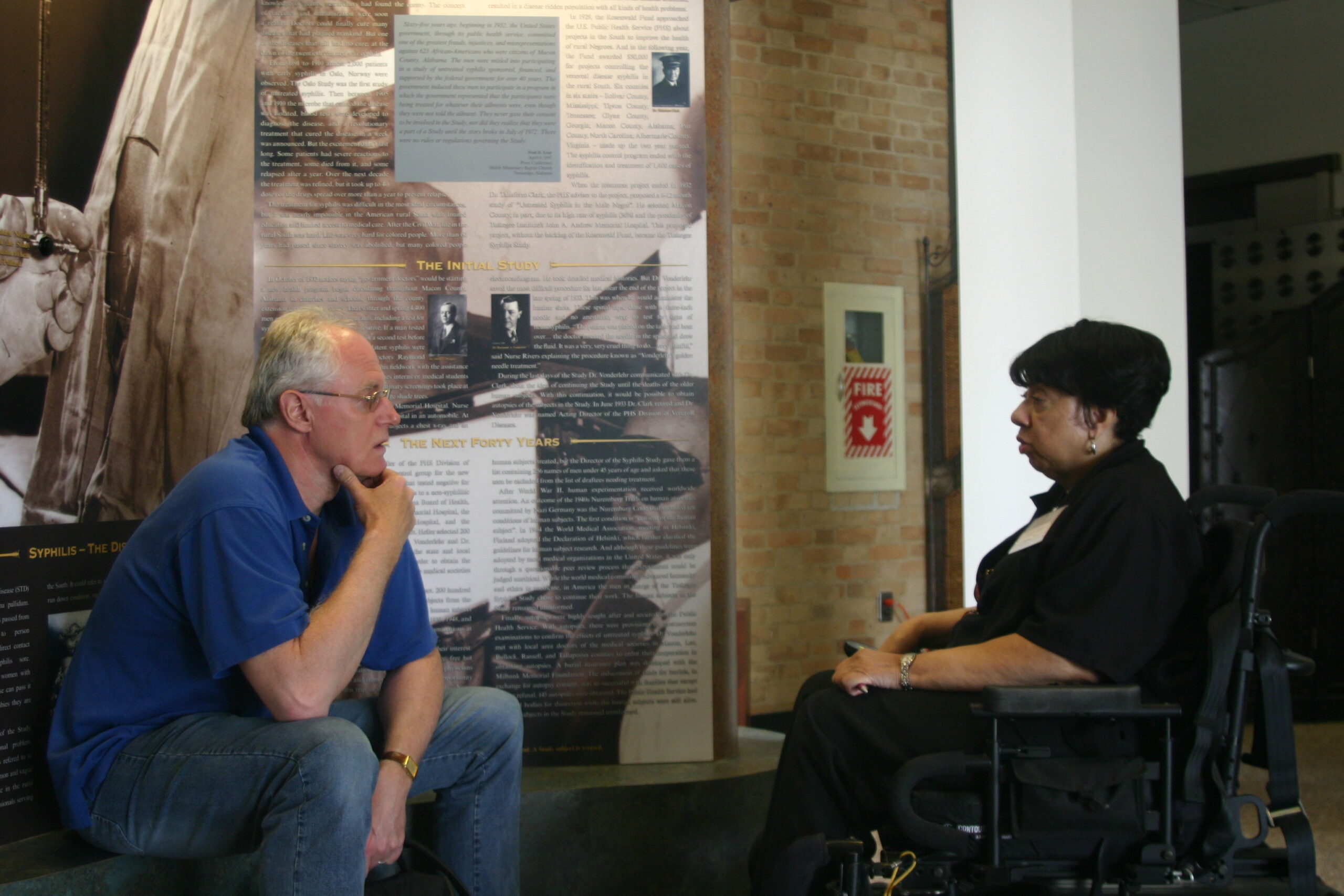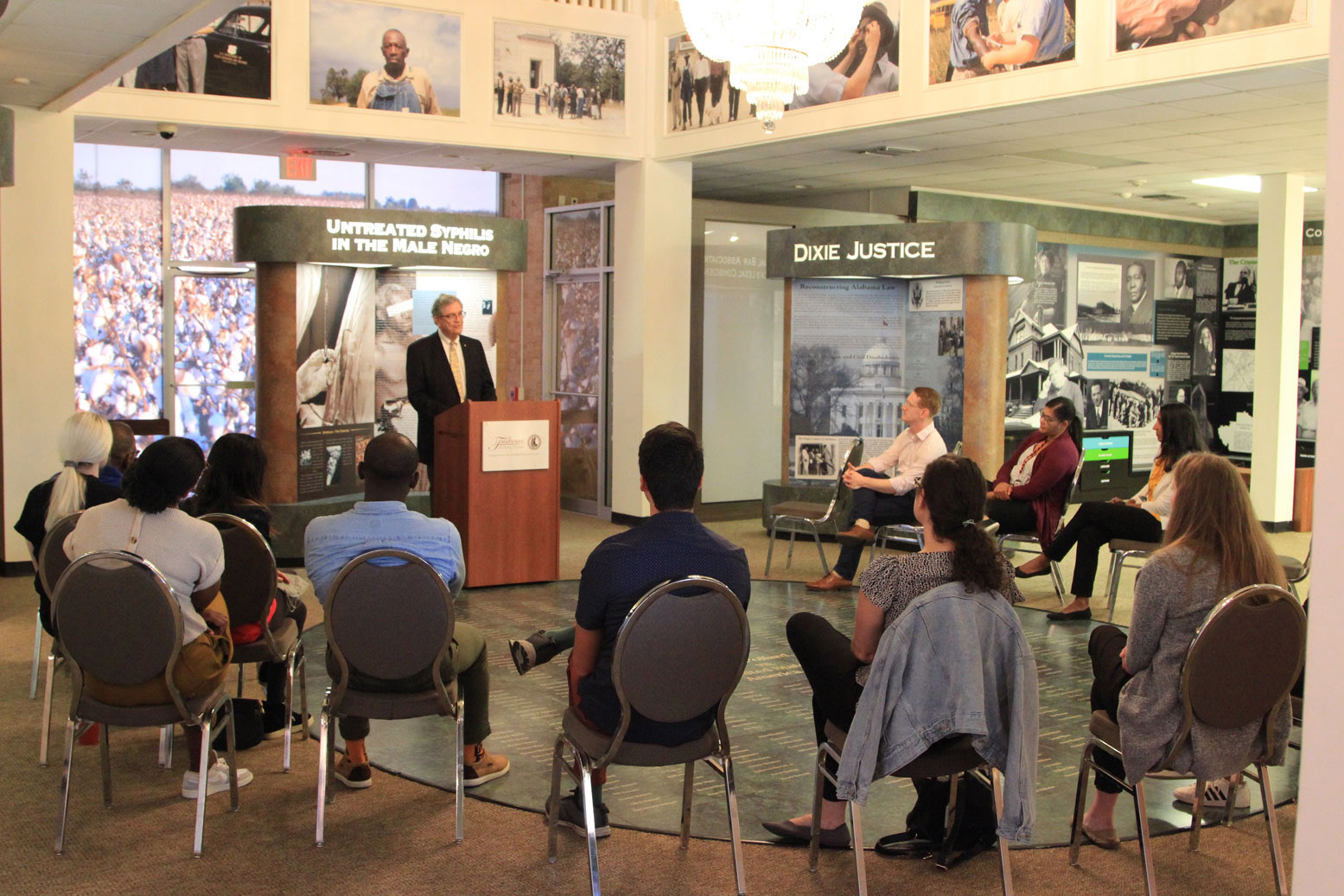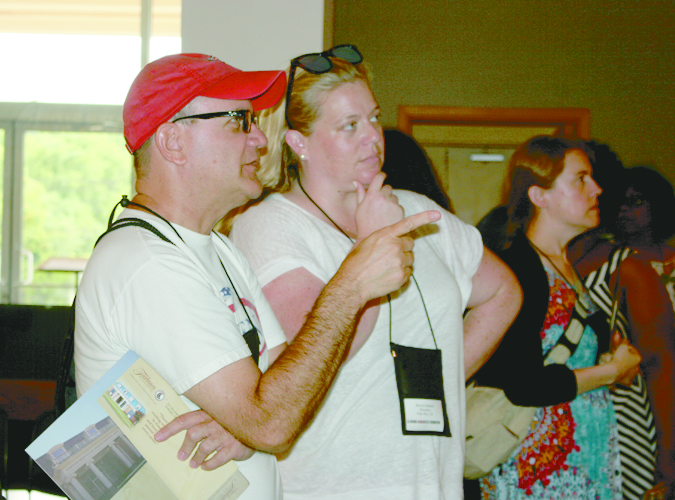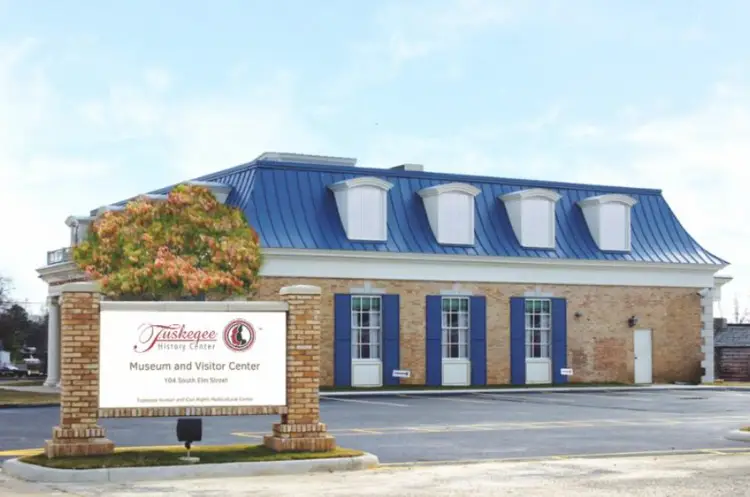One historic place, Three historic cultures
About the Tuskegee History Center
The Tuskegee Human and Civil Rights Multicultural Center, later named the Tuskegee History Center, is one of the most unique museums in the country, taking visitors on an in-depth exploration spanning from pre-human history to 20th century America.
The Tuskegee History Center is part of the U.S. Civil Rights Trail. The first floor houses our exhibits on The Tuskegee Syphilis Study and topics that chronicle Alabama’s civil and human rights related history, significant African Americans Alabama residents who have lived in Tuskegee/Macon County, and both student and community involvement in the Alabama Voting Rights Marches. The second floor features a multi-purpose room used for presentations, traveling exhibits, workshops, and author events. We also collect and archive oral history recordings from current and former residents involved in the Civil Rights Movement, preparing these valuable resources for investigation and long-term preservation.
The Center serves as the official visitor center for Macon County, Alabama and the city of Tuskegee.
MISSION STATEMENT:
To preserve, present, and promote the culture and history of Macon County and its people through interpretation, artifacts and cultural education.
“In addition to an apology, we want to construct in Tuskegee a permanent memorial. A place where our children and grandchildren will be able to see the contributions that we and others made to this country. I am glad that I have helped form the Tuskegee Human & Civil Rights Multicultural Center which will be for the purpose of creating such a lasting memorial.”
Herman Shaw
May 16, 1997, The White House
Our Story
Established in 1997 as the Tuskegee Human and Civil Rights Multicultural Center, our non-profit organization was initially formed to serve as a permanent memorial to the victims and survivors of the Tuskegee Syphilis Study, conducted between 1932 and 1972. In 1997, the men of the Study requested an apology from the federal government in a press conference held at Shiloh Missionary Baptist Church in Notasulga, Alabama, which led to an invitation to the White House. On May 16, President Bill Clinton issued a formal apology on behalf of the United States for the wrongs done by the study. Remaining survivors, including Mr. Herman Shaw, were present and shared their desire for a permanent memorial.
The vision of Mr. Herman Shaw and that of their lawyer, Fred D. Gray, has been fulfilled as this lasting memorial encompasses the rich history of the entire community. Under this new vision, there would also be recognition of the three cultural groups that have contributed to the shaping and reshaping of Macon County – Native Americans, European Americans, and African Americans.
The Center has grown considerably since its initial conception. There has been interior and exterior renovation work to convert a former vacant bank building into a vibrant history museum. In conjunction with physical changes, there have been the addition of a myriad of educational programs, workshops and activities over the years, including temporary museum exhibits ranging from traveling Smithsonian exhibitions, to a locally produced Tuskegee Airmen Art exhibit of national and international artists. Our programs have attracted the attention of individuals and groups from all over Alabama, America, and the world.
The Center Over the Years
Affiliates
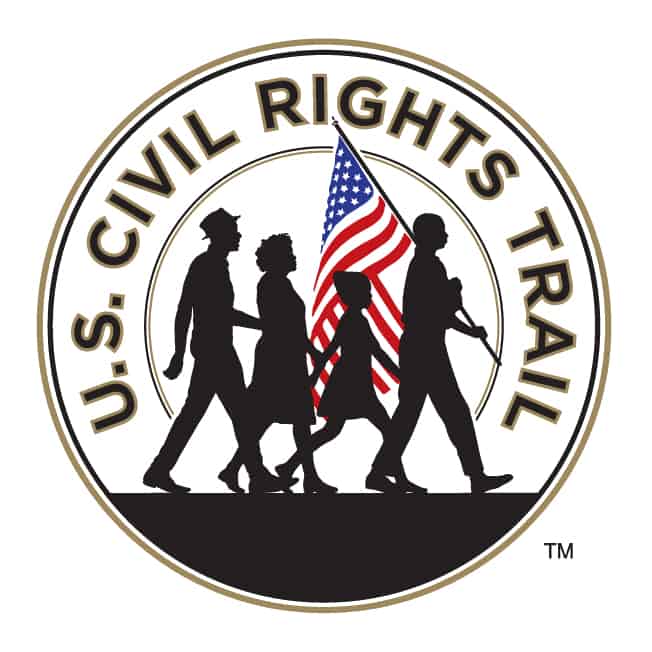

Acknowledgement
The Tuskegee History Center acknowledges that as it is situated in Macon County, Alabama, and it is located on the ancestral homeland of the Creek or Muscogee people, descended from the Mississippian peoples of 800-1500 AD. We acknowledge the Muscogee (Creek) Nation and the Poarch Band of Creek Indians, both past and present, as well as future generations. Acknowledging past exclusions and erasures of many indigenous people, including those on whose lands this institution was founded, we demonstrate a commitment to the process of dismantling the ongoing legacies of settler colonialism.

